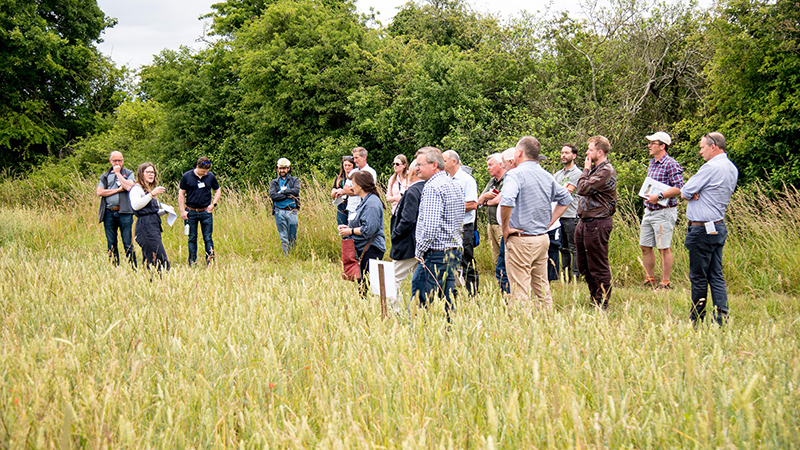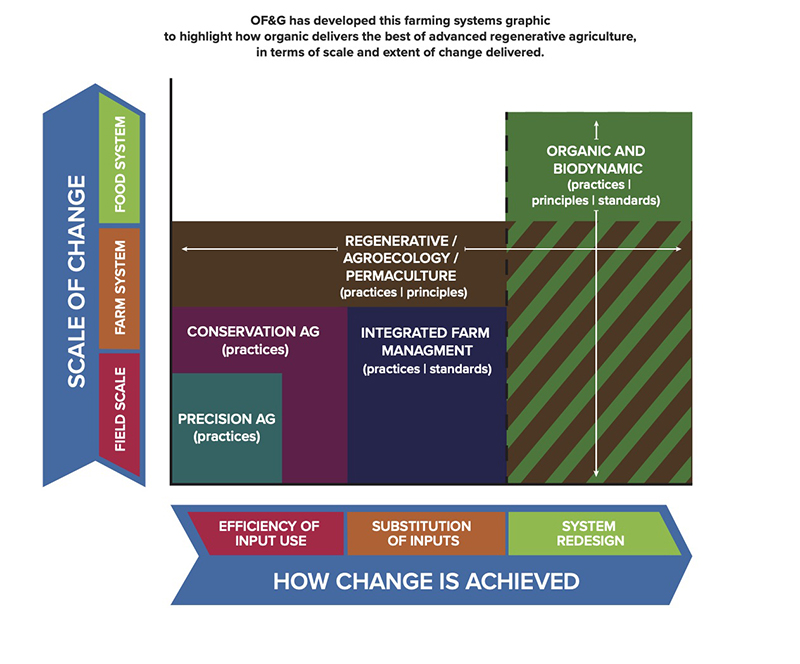
Delegates at the UK’s largest organic conference, OF&G’s National Organic Combinable Crops (NOCC) heard how market opportunity, and increased recognition of organic’s benefits, should encourage increases in organic agricultural land area.
Deputy director and policy manager of IFOAM Organics Europe, Eric Gall, told the audience, that 16 countries in Europe have more than 10% organic land area. Currently, the UK only has around 3% dedicated to organic production, despite being the third fastest-growing organic retail market in Europe.
“The UK has the eighth largest market for organic food sales worldwide, but current low production levels leaves plenty of scope for growth. Organic farming is a ‘climate smart’ solution and the leading model for a transition to more sustainable food systems. It is time to capitalise on this opportunity,” says Mr Gall.
Referencing the newly published French Court of Auditors report, which makes 12 recommendations to meet the ambitious objectives on the EU’s Farm to Fork strategy, Mr Gall concludes that policy support for organic farming remains insufficient.
OF&G’s chief executive, Roger Kerr, adds that the independent French Governmental report, published on 30 June 2022, provides further confirmation that organic processes assure positive outcomes.
“The Court of Auditors has evaluated public policy support for organic farming based on a review of extensive scientific literature,” says Mr Kerr. “It highlights the scientifically proven benefits for health with less cancers and diabetes in organic consumers, as well as benefits for water quality, less GHG emissions and greater biodiversity. If we’re told we have to follow the science, then organic has been proven to deliver.
“France and other EU countries are committed to providing substantial support for the development of the organic sector through research and innovation. There is widespread recognition from our nearest neighbours that organic farming can be an effective public policy tool in reaching environmental policy objectives. If we wish to succeed in the transition to more environmentally friendly practices then we need to facilitate higher organic conversion rates,” he continues. “It’s great to hear such positive dialogue at NOCC, and elsewhere, but we have yet to see that formalised in policy measures.”

During the conference, NOCC attendees also had a guided farm walk around Henry Edmunds’ organic arable, beef and sheep farm. The award winning Cholderton Estate was specifically selected as host farm to showcase its impressive record in nature recovery as described in a Natural Capital Account delivered through Defra’s Test & Trials programme in 2021.
Mr Edmunds said; “It’s been a great day, and wonderful to welcome so many people on to the farm. I believe that improving biodiversity is a win-win opportunity and hosting the NOCC conference has enabled us to show people what can be achieved with right management.”
Mr Kerr concludes by saying; “The economic and environmental success of Cholderton has been achieved through organic’s advanced regenerative practices. People have told us they have been buoyed and inspired by what they have seen and heard at Henry’s farm today. Organic represents a real economic and environmental opportunity for farmers seeking to ‘de risk’ their business and we would recommend Government and farming businesses take a very serious look at this opportunity.”
